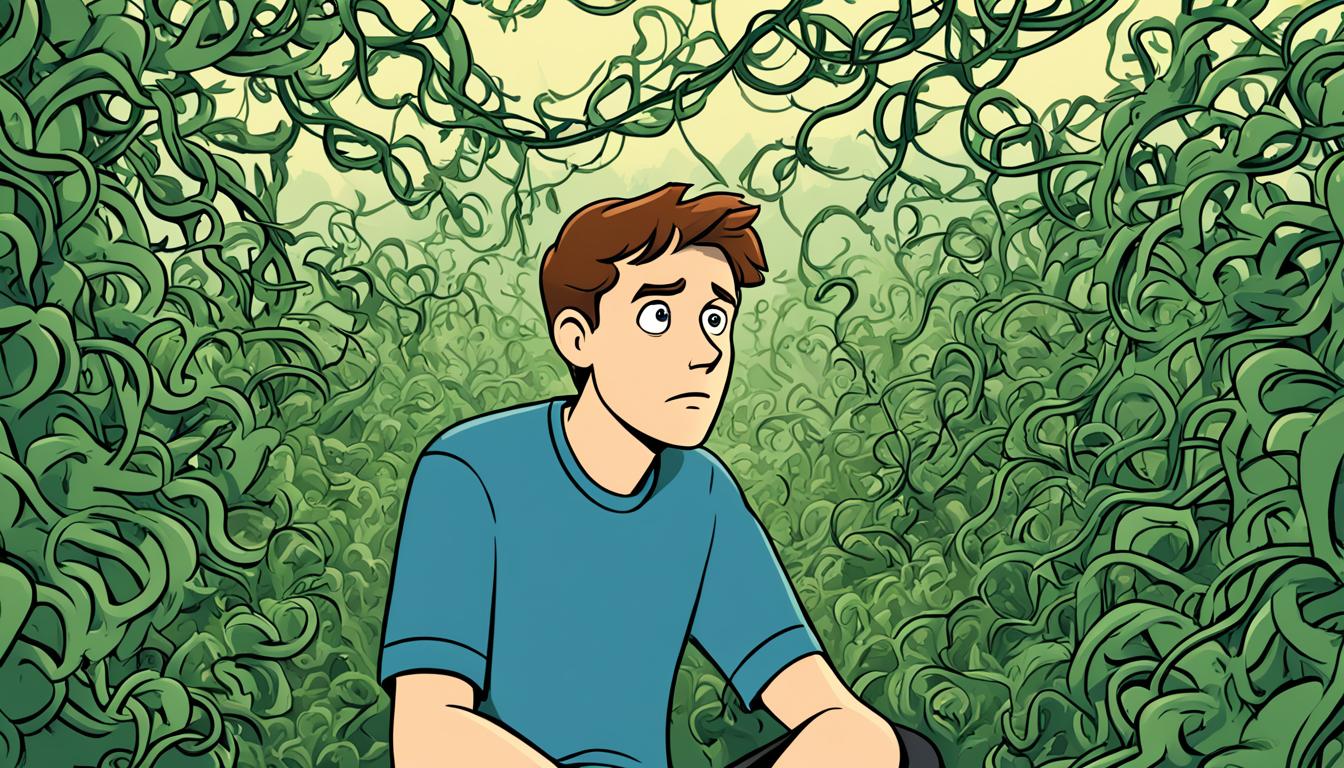Anxiety and depression are common mental health conditions that can affect anyone, regardless of age, gender, or background. They often go hand in hand, and understanding their relationship is crucial for effective anxiety and depression treatment and support. However, one question usually arises: Are these two disorders present or related? Below, we will discuss a few important caveats that help us differentiate between the two disorders and if they can occur together.
Table of Contents
ToggleLet’s Start With The Basics. What Is Anxiety And Depression?
Anxiety: A long time ago, when our ancestors roamed the grasslands in Africa, they often felt anxious, thinking about the predators around them or the weather and food availability. It was a valid response, as their fears were confirmed. However, nowadays, most of our fears live in our minds, and we suffer the same anxiety that used to be somewhat protective in ancient times to survive. When this feeling becomes persistent, and we cannot let go of it, it’s called worrying. This worry leads to an unending cycle of thoughts about all possible bad outcomes, which leads to an uncomfortable, loss of control-like feeling called anxiety. People with anxiety behave just like our ancestors did in the forests: always alert, looking out for danger, and looking to survive. Our ancestors, though, took rest once they were safe and had food, but we cannot seem to do that. This never-ending cycle of thought drives us crazy. It isn’t easy to concentrate, sit still or sleep. We feel edgy, irritable, sweaty and angry. Soon, we begin to lose our grip on life, our work gets affected, relationships break off, addictions start, and we lose control over everything that was once working for us, only to worsen the feeling of losing control.
Depression: This is a state of feeling low and demotivated. Usually, it starts as a need for more interest and motivation. Then, it progresses to lethargy, a lack of pleasure and passion in life. Individuals feel worse in the morning and improve as the day progresses. Suppose sadness, emptiness or lack of interest persists for over two weeks and doesn’t change even in happier circumstances. In that case, it’s a sign of a depressive disorder.
Other signs of a depressive disorder are frequent aches and pains, decreased sleep, guilt and worthlessness, loss of sex drive, lack of initiative in relationships, self-hurt and suicide.
How Are Anxiety And Depression Related?
Anxiety and depression often co-occur, meaning that if you have one, you are at a higher risk of developing the other. This coexistence can make it challenging to diagnose and treat these conditions effectively. Both anxiety and depression affect sleep, sex drive, concentration, moods and energy levels read more about Effects Of Depression In Your Body.
An anxious person tends to think about all the bad outcomes and cannot let go of that thought cycle, whereas a depressed person may think of guilt or helplessness. In both cases, it is the inability to let go of the thoughts; the nature of thought determines the emotion an individual feels.
When an anxious person cannot fix the thought cycle, they eventually get exhausted and lose motivation, leading to depressive Anxiety And Depression Symptoms. So, there is an overlap among these two disorders.
Negative Thought Patterns are common to both conditions. In anxiety, these thoughts often revolve around perceived threats or dangers, while in depression, they focus on feelings of worthlessness or hopelessness. These negative thoughts can reinforce each other and worsen the overall emotional state. Stressful life events can trigger both anxiety and depression. Experiencing a traumatic event or undergoing significant life changes, such as divorce or losing a loved one, can increase the risk of developing either or both conditions.
At the neurochemical level, anxiety and depression share similarities with transmitters such as serotonin, norepinephrine and dopamine at play.
Managing Anxiety and Depression Together
First, recognize the problem yourself. Here is how:
For Anxiety
- Do you feel worried all the time?
- Are you thinking about things you can’t control more than usual?
- Are you always tired?
- Have you started or increased your smoking or drinking?
- Do you have mood swings or anger outbursts?
- Have I started having more gastric-related problems and irritable bowel?
- Aches and pains
- Feeling restless and edgy?
For Depression:
- Waking up later than usual
- Don’t want to go out, feel exhausted
- Constantly feeling guilty and helpless.
- Thinking about self-harm/suicide
- Crying more than before
- Ignoring self-care and hygiene
Suppose you answered yes to most of the questions mentioned above. In that case, the next most important step is to seek help from a professional. They can provide a proper diagnosis and create a tailored Treatment Of Depression plan.
There are various ways to manage mental disorders, which range from medicines to psychotherapy. However, there are a few things you can start doing straight away to help your brain and mind.
- Balanced diet: Fruits and Vegetables
- Avoid more than one cup of coffee or tea.
- Say no to Sodas and Colas
- Say not sugary drinks like juices.
- Exercise regularly
- Sunlight
- Sleep
- Avoid the use of mobile phones and electronic devices.
- Ask for help from family or friends or find a support group.
- Look for things that make you happy, maybe some old photos or videos of happier times.
- Yoga or Pranayama ( Gold!!!)
Conclusion
Anxiety and depression are complex mental health conditions that often go hand in hand. They share common symptoms and can create a challenging cycle of negative thoughts and emotions. However, managing these conditions effectively with the proper support and treatment is possible. Remember that seeking help is a sign of strength, and there is hope for a brighter future. If you or someone you know is struggling with anxiety and depression, reach out to a health professional today to start the journey toward healing and recovery.
References:

This article is medically reviewed by Dr. Chandril Chugh, Board-Certified Neurologist, providing expert insights and reliable health information.
→ Book a consultation to discover which remedies suit your needs best.
About Author | Instagram | YouTube | Linkedin
Related Blog Posts
Anxiety in Adolescence: Recognizing and Managing Symptoms
November 3, 2024





